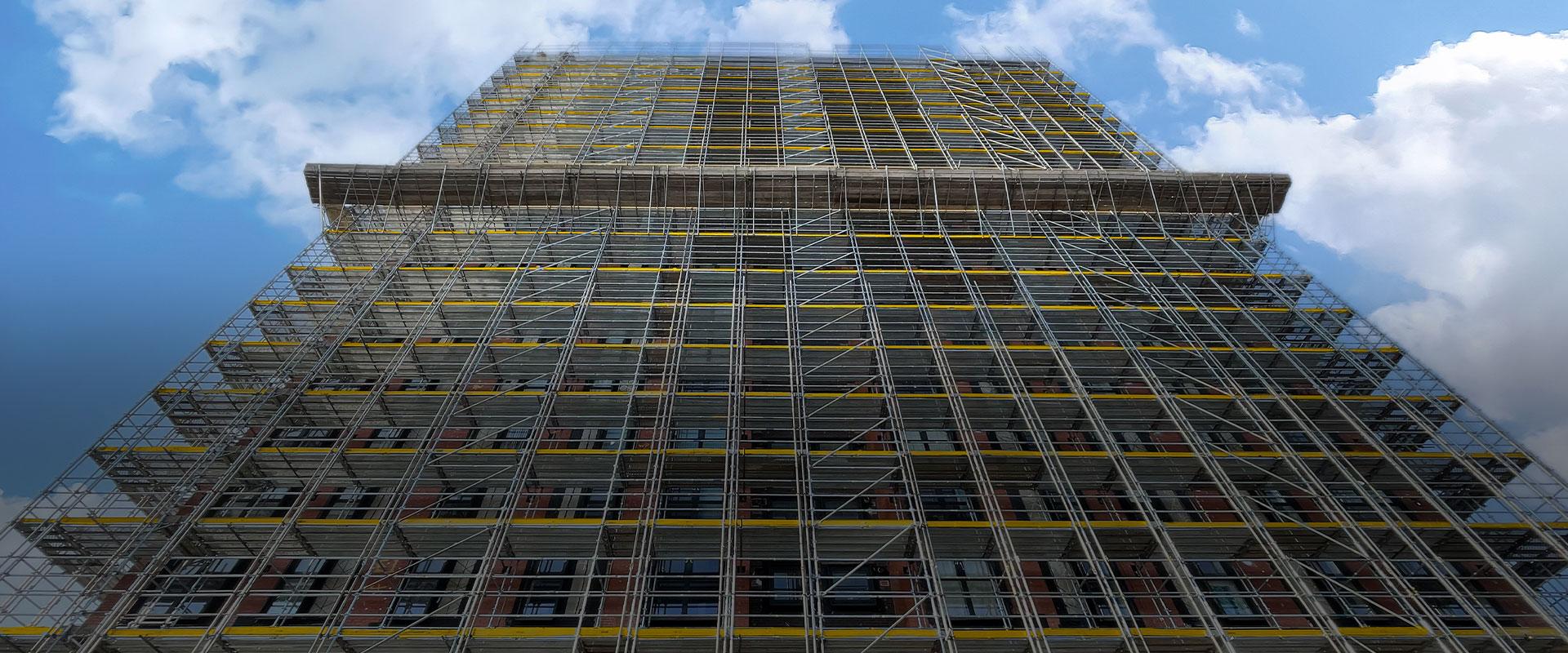Exploring the Various Types of Scaffolding Utilized in Building And Construction Tasks
The building and construction market counts heavily on various kinds of scaffolding to meet specific task demands, each offering distinct benefits and applications. Standard framework scaffolding offers a sturdy structure for basic tasks, while put on hold scaffolding is essential for work on high-rise structures.

Typical Frame Scaffolding
Traditional framework scaffolding is one of the most commonly made use of methods in the construction industry as a result of its effectiveness and convenience. This system includes upright and horizontal structures that are set up to produce a stable platform for materials and employees. The major elements include upright messages, horizontal journals, and diagonal braces, which with each other offer a strong framework that can sustain substantial loads.
One of the key advantages of traditional framework scaffolding is its flexibility to different construction projects, ranging from residential structures to huge industrial frameworks. The modular design enables for easy assembly and disassembly, making it reliable for both long-term and short-term tasks. Furthermore, the system can be customized in elevation and width, suiting various building layouts and site conditions.
Safety and security is vital in scaffolding applications, and typical structure systems are furnished with guardrails and toe boards to stop falls and guarantee employee defense. Normal inspections and adherence to safety policies are crucial in keeping the honesty of the scaffold (Scaffolding). Overall, traditional structure scaffolding remains an essential option in the building and construction industry, supplying a reliable platform for labor and improving overall project efficiency

Suspended Scaffolding
Suspended scaffolding provides a distinct service for construction tasks that call for accessibility to elevated surface areas, especially in circumstances where standard frame scaffolding might be unwise. This kind of scaffolding is commonly put on hold from the roofing or upper degrees of a framework, using a system of pulley-blocks, ropes, and platforms to develop a working space that can be gotten used to various heights.
Among the main advantages of suspended scaffolding is its flexibility. It can be easily rearranged or reduced to accommodate adjustments in building needs, making it excellent for jobs such as window installment, façade job, and upkeep on high-rise structures. Additionally, the very little footprint of put on hold scaffolding enables better use ground area in urban settings, where room is frequently restricted.
Security is a crucial consideration in the use of suspended scaffolding. Generally, suspended scaffolding offers a reliable and reliable remedy for accessing hard-to-reach areas in different building circumstances, enhancing both productivity and safety and security on site.
System Scaffolding
System scaffolding, commonly considered a modern option in the scaffolding market, contains pre-engineered parts that can be promptly set up and adapted for different building and construction go tasks. Scaffolding. This kind of scaffolding is characterized by its modular design, which permits flexibility and performance on work websites, accommodating various elevations and structural needs
Commonly made from high-strength steel or aluminum, system scaffolding supplies boosted sturdiness and stability. The components include vertical messages, straight ledgers, and angled braces, which adjoin safely, guaranteeing a durable framework. The layout frequently incorporates standardized installations, streamlining setting up and disassembly procedures, consequently lowering labor time and prices.

Rolling Scaffolding
Moving scaffolding is a functional alternative to standard set scaffolding, designed for flexibility and ease of use on building sites. This type of scaffolding contains a system sustained by frameworks with wheels, allowing workers to easily relocate it as required. The wheelchair function significantly enhances productivity, as it decreases downtime linked with constructing and disassembling dealt with scaffolding.
Typically built from light-weight products such as light weight aluminum or steel, rolling scaffolding provides a strong yet portable option for projects requiring regular repositioning - Scaffolding. It is especially helpful in jobs such as paint, drywall installation, and electrical work, where access to numerous elevations and places is required
Safety and security is paramount in rolling scaffolding style, with functions such as securing wheels to avoid unplanned activity when in use, and guardrails to shield workers from drops. Additionally, several designs are flexible in elevation, accommodating numerous task requirements.
Cantilever Scaffolding

The layout of cantilever scaffolding generally involves utilizing braces or arms anchored to a scaffolding theory vygotsky structure or framework, allowing the system to prolong outside securely. Security is critical; thus, these scaffolds should be crafted to withstand numerous loads and environmental conditions. Normal inspection and upkeep are necessary to make sure architectural integrity and employee safety.
Cantilever scaffolding is preferred for its flexibility and effective use space, making it a popular option in urban atmospheres where space restraints prevail. It helps with much easier access to high altitudes, eventually contributing to the total efficiency of construction jobs. As with all scaffolding kinds, appropriate training and adherence to safety criteria are crucial for employees making use of cantilever scaffolding.
Final Thought
Finally, the diverse kinds of scaffolding made use of in construction tasks each serve distinct functions customized to specific site requirements. Conventional frame scaffolding offers security, while suspended scaffolding provides convenience for elevated jobs. System scaffolding assists in fast assembly, and rolling scaffolding improves wheelchair for differing work settings. Cantilever scaffolding effectively addresses challenges in metropolitan setups. Understanding these scaffolding kinds is necessary for optimizing safety and productivity in building, eventually adding to the effective conclusion of jobs.
Typical frame scaffolding supplies a tough structure for basic tasks, while put on hold scaffolding is important for work on skyscraper structures.Rolling scaffolding is a versatile choice to standard set scaffolding, made for flexibility and ease of use on construction sites. As with all scaffolding kinds, proper training and adherence to safety criteria are important for employees making use of cantilever scaffolding.
Standard framework scaffolding gives security, while put on hold scaffolding provides adaptability for raised tasks. System scaffolding assists in quick assembly, and rolling scaffolding enhances wheelchair for differing job atmospheres.